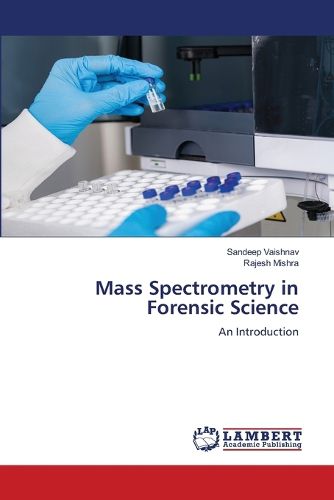Readings Newsletter
Become a Readings Member to make your shopping experience even easier.
Sign in or sign up for free!
You’re not far away from qualifying for FREE standard shipping within Australia
You’ve qualified for FREE standard shipping within Australia
The cart is loading…






Mass Spectrometry in Forensic Science: An Introduction explores the groundbreaking impact of mass spectrometry (MS) in Forensic Science. As forensic science enters a new era, this book delves into how MS is revolutionizing the field by providing unmatched objectivity, sensitivity, and versatility in forensic analysis. Designed for a broad audience, including experienced forensic scientists, students, legal professionals, and anyone intrigued by the intersection of science and justice, this book lays the groundwork with a thorough introduction to the fundamental principles of MS. Readers will gain insight into the technology's core components, ionization techniques, and mass spectra interpretation. The book illustrates the extensive applications of MS across various forensic disciplines, such as drug identification, DNA analysis, trace evidence examination, and fire debris investigations. It goes beyond the laboratory, emphasizing the critical importance of data analysis, interpretation, and the use of mass spectral databases, chemometric techniques, and validation procedures to ensure data reliability.
$9.00 standard shipping within Australia
FREE standard shipping within Australia for orders over $100.00
Express & International shipping calculated at checkout
Mass Spectrometry in Forensic Science: An Introduction explores the groundbreaking impact of mass spectrometry (MS) in Forensic Science. As forensic science enters a new era, this book delves into how MS is revolutionizing the field by providing unmatched objectivity, sensitivity, and versatility in forensic analysis. Designed for a broad audience, including experienced forensic scientists, students, legal professionals, and anyone intrigued by the intersection of science and justice, this book lays the groundwork with a thorough introduction to the fundamental principles of MS. Readers will gain insight into the technology's core components, ionization techniques, and mass spectra interpretation. The book illustrates the extensive applications of MS across various forensic disciplines, such as drug identification, DNA analysis, trace evidence examination, and fire debris investigations. It goes beyond the laboratory, emphasizing the critical importance of data analysis, interpretation, and the use of mass spectral databases, chemometric techniques, and validation procedures to ensure data reliability.